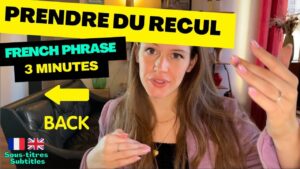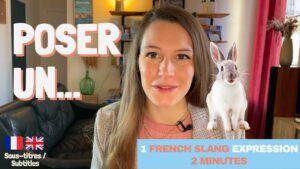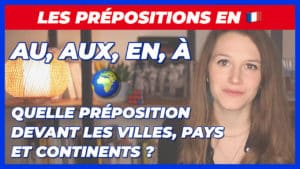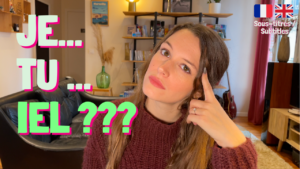In this video I explain 4 expressions that you often confuse! 0:00 - Introduction
- 1:42 - A fact
- 2:25 - Indeed
- 3:05 - In fact
- 3:46 - By the way
- 4:17 - Conclusion
Transcript
Hello everyone. I hope you're doing well and that your learning French is going well.
So today, we're going to look at four French expressions that are very similar and can easily be confused. Here are the four expressions: un fait, en fait, au fait, en effet. For example, I might say: "French is not an easy language, that's a fact. Indeed, there are a lot of complicated rules. We often think that once we've learned all these rules, it's very easy to speak French. But in fact, there are many exceptions to these rules.
By the way, how are you getting on with learning French? I can help!" You may have missed the point. In fact, there are a lot of very similar expressions, such as en effet, au fait, en fait and un fait. We're now going to look at each of these expressions together, what they mean, and I'll give you some concrete examples so that you can understand them if a French person uses them, but also use them yourself. The first one we looked at is "un fait".
I said "French is a complicated language, that's a fact". So a fact is an event, it's something that can't be disputed, that's true for everyone. For example, I could say "Michael Schumacher is the best Formula 1 driver in the world, it's a fact, he's the only one to have won the world championship seven times". I could also say "The older I get, the more wrinkles I get, that's a fact". Or you could say, "He's eaten the whole cake, it's a fact, there's not a crumb left".
The next expression is: indeed. So, we use en effet to confirm what someone has just said, or to justify what we've just said. For example, you might say "Mathieu is very nice, indeed, he's always available to help me learn French".
We could also say "Aren't you cold in your t-shirt?" "Indeed, I'm very cold, I forgot my coat" or we could say "I'm very very hungry, indeed, I haven't eaten anything all day".
The next expression is "in fact". We use "in fact" to say "in reality, contrary to what you might think". So, for example, I could say: "I keep saying I have to study, but in fact I just watch TV". Or "I've got a degree in fashion design, but I'm actually a waitress in a restaurant". To say, contrary to what you might think, I do another job.
Another example might be: "I ate all that chocolate cake, but I actually prefer fruit tarts.
Finally, the last expression is "by the way". So, we use au fait to say "by the way". For example, I might say: "I ran into pierre. He looks great. By the way, how's his wife?" Another example might be, if I say to someone, "I'm off shopping this afternoon". He might say to me: "By the way, will you think about buying some more pasta? And a final example might be: "I watched a James Bond movie yesterday, by the way, do you know when the next one's coming out?
That's all for today, I hope you've understood the difference between these four expressions and can now understand and use them. If there are other words or expressions in French that you find very similar and that you're having trouble understanding, don't hesitate to comment on them so that I can explain them to you in a future video.
If you'd like to see more videos, don't hesitate to subscribe to the channel or visit www.hellofrench.com. See you soon.








